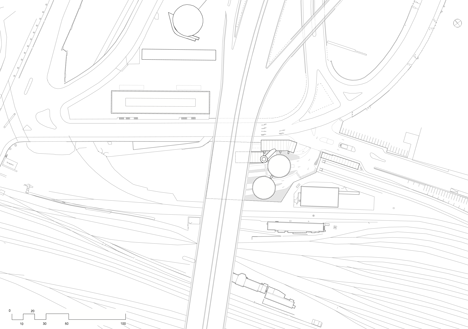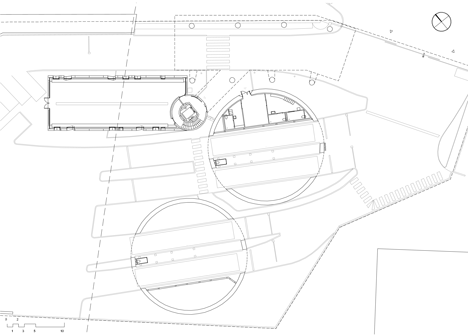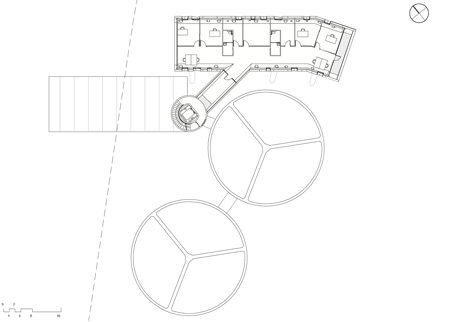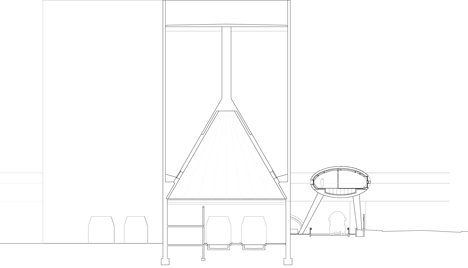Monolithic concrete silos by VI.B Architecture form Parisian cement company HQ
French architecture firm VI.B Architecture has designed a cluster of giant concrete silos to house the headquarters for a cement distribution centre on the outskirts of Paris (+ slideshow).
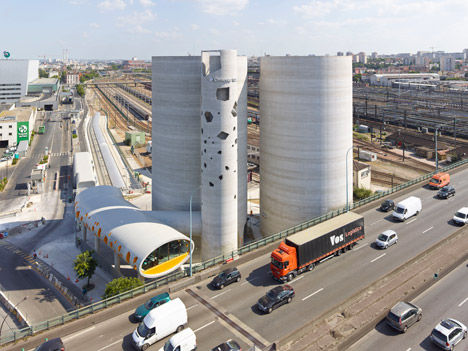
Silos 13 was created by VI.B Architecture as a new base for French cement firm Calcia, situated in the Bruneseau Nord industrial neighbourhood beside Paris' eastern ring road – one of Europe's busiest freeways.
Passed by an average of 300,000 vehicles a day and the first building in the newly created development, VI.B Architecture was tasked with creating a landmark on the prominent site.
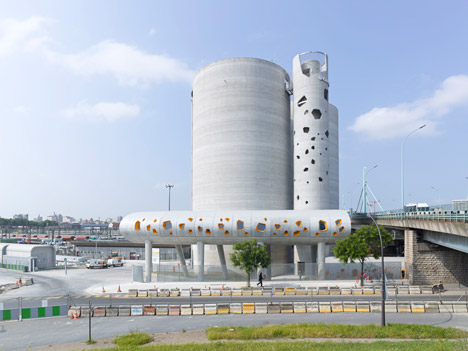
"The initial challenge for us clearly was to bring in bold design to the industrial plant," said the architects. "The project [took a long time] to design at first, due to high stakes and its noticeable location along Paris' ring road."
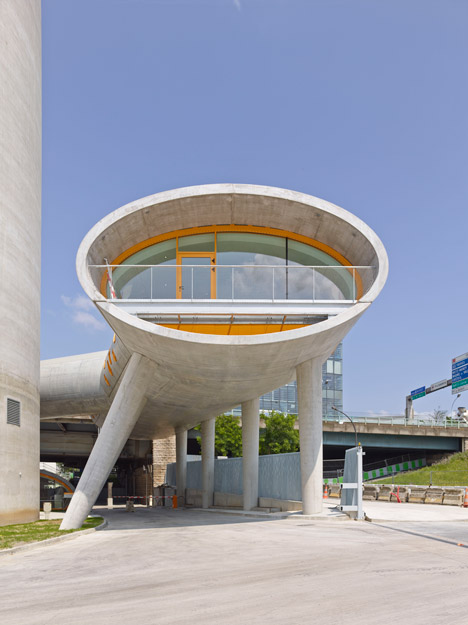
Concrete was chosen as the external material for all of the buildings – an inevitable choice given its occupants, according to VI.B Architecture.
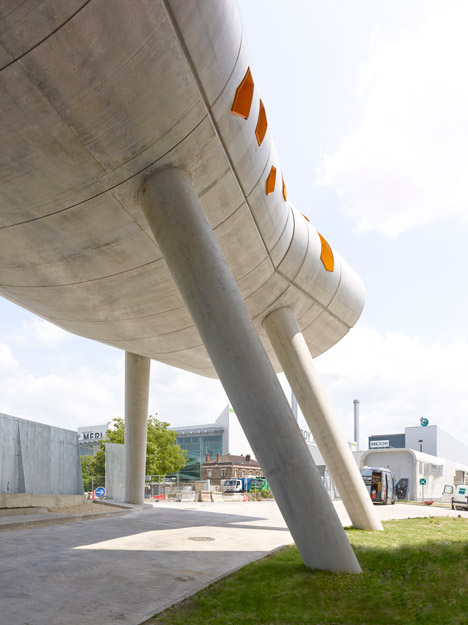
"It was obvious that Calcia – who would be running the centre – would prefer materials that promote their people's skills and business of making and selling cement, to erect wonderful buildings around the city," the architects said.
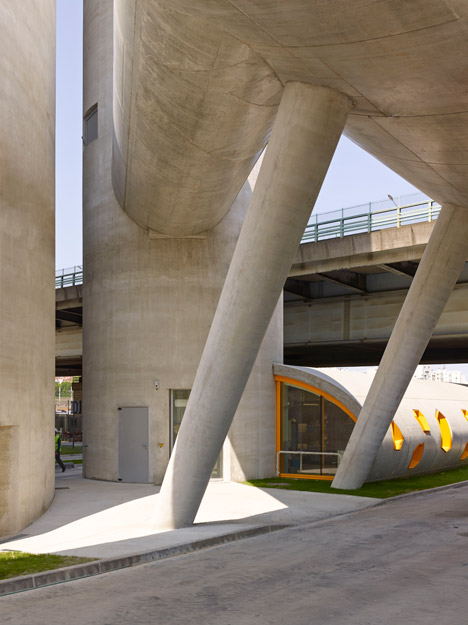
Two large storage silos reach 37 metres, the maximum height for buildings in Paris. To achieve the volume needed to contain enough cement, each had to measure 20 metres in diameter.
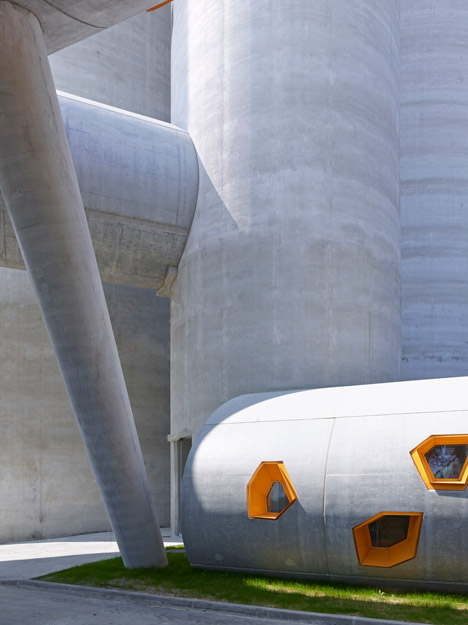
Offices are contained within a curving tube that wraps around the vertical structures, raised up on angled pillars so trucks can drive underneath.
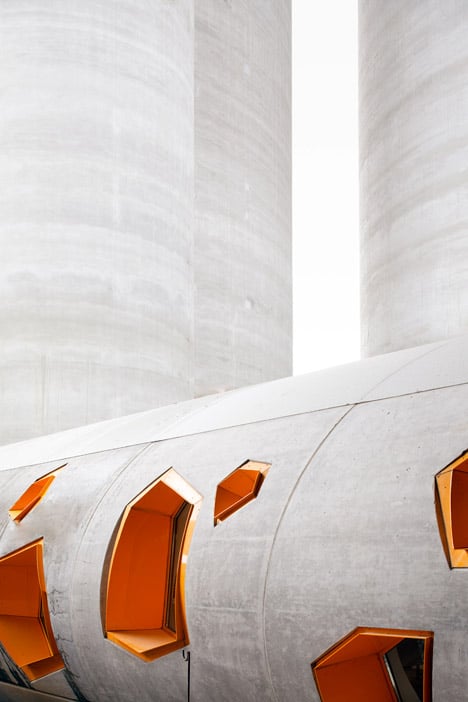
Glazed partitions run along the corridor that links the office spaces and meeting rooms divided by white walls.
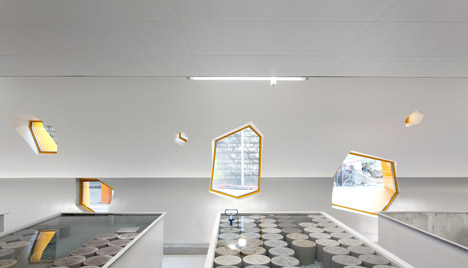
Another tubular structure resting on the ground houses the quality control centre, which stretches under the elevated roadway.
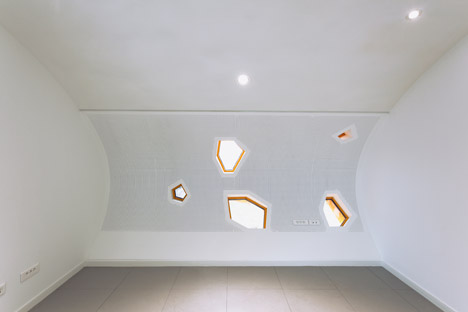
A thinner tower, reaching the same height as the silos, contains the vertical circulation that connects the elements of the building together.
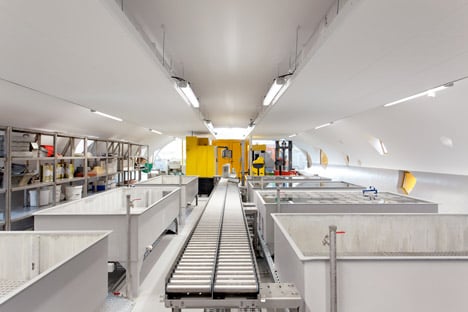
These smaller elements are perforated by a variety of polygonal windows, surrounded by yellow aluminium frames that are also used for external doorways.
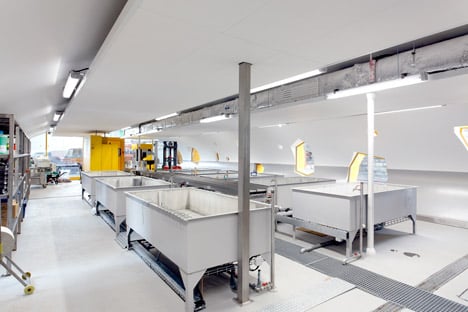
"The polygonal shape chosen for these openings was imagined as a form of abstraction of two different ideas: the shape of the stones that are used in making the concrete as one, or a mineral fragment or a broken rock as another," said VI.B Architecture.
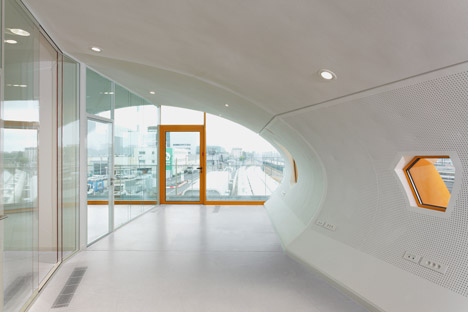
The main silos and the vertical tower were cast using slip forming, pouring layers of concrete into formwork that was gradually moved up as the building grew.
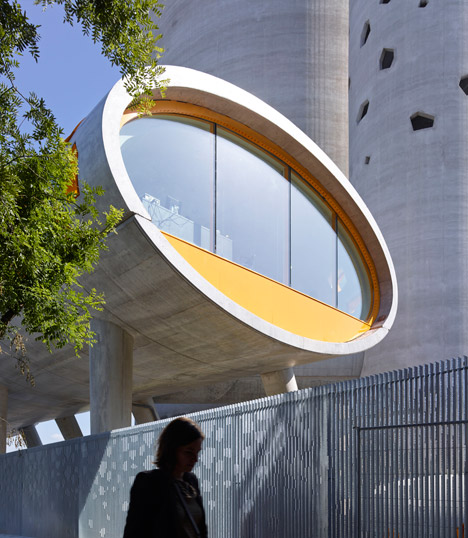
Horizontal structures were created using prefabricated shells that were delivered and lifted into place.
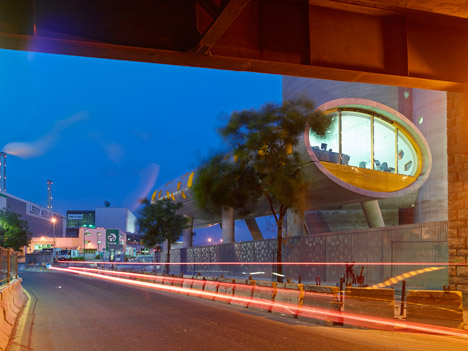
The project also includes a rail terminal for distributing goods and loading platforms for delivery by road.
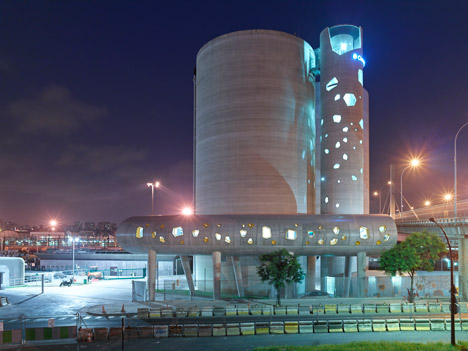
Exterior photography by Stéphane Chalmeau, interior photography by Daniel Moulinet.
